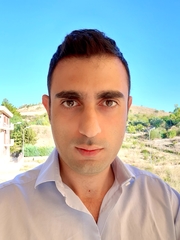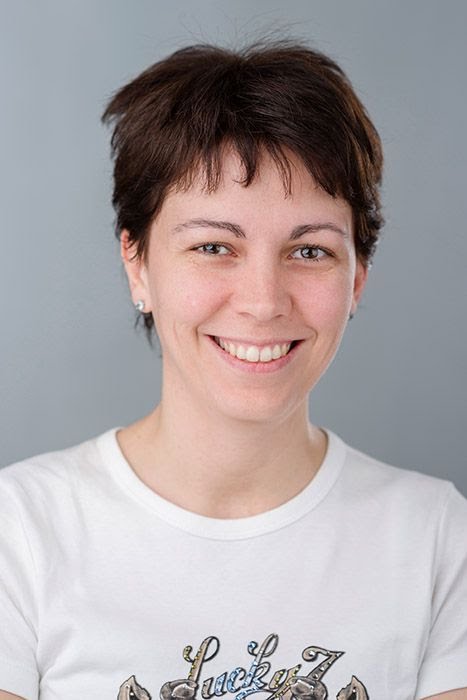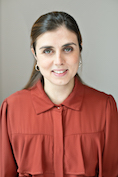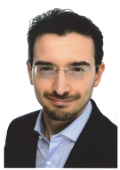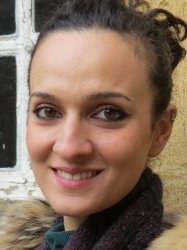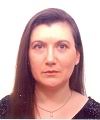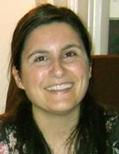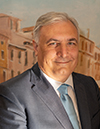Formazione e ricerca
Attività Formative del Corso di Dottorato - 2023/2024
This page shows the courses and classes of the PhD programme for the academic year 2023/2024. Additional courses and classes will be added during the year. Please check for updates regularly!
Mathematical Statistics
Crediti: 5
Lingua di erogazione: English
Docente: Catia Scricciolo
Microeconomics I
Crediti: 7,5
Lingua di erogazione: English
Docente: Simona Fiore, Claudio Zoli, Martina Menon
Continuous Time Econometrics
Crediti: 5
Lingua di erogazione: English
Docente: Cecilia Mancini
Probability
Crediti: 7,5
Lingua di erogazione: English
Docente: Marco Minozzo
Macroeconomics I
Crediti: 7,5
Lingua di erogazione: English
Docente: Tamara Fioroni, Alessia Campolmi
Game theory
Crediti: 5
Lingua di erogazione: English
Docente: Francesco De Sinopoli
Mathematics
Crediti: 4,5
Lingua di erogazione: English
Docente: Andrea Mazzon, Jonathan Yick Yeung Tam
Advice to Young Researchers
Crediti: 4
Lingua di erogazione: English
Docente: Marco Piovesan
Stochastic Optimization and Control
Crediti: 5
Lingua di erogazione: English
Docente: Athena Picarelli
Financial Time Series
Crediti: 5
Lingua di erogazione: English
Docente: Giuseppe Buccheri, Francesca Rossi
Mean Field Games (part I)
Crediti: 2,5
Lingua di erogazione: English
Docente: Luciano Campi
Job Market Orientation
Crediti: 1
Lingua di erogazione: English
Docente: Joan Madia, Simone Quercia
Discretization of Processes
Crediti: 4,5
Lingua di erogazione: English
Docente: Jean Jacod
Topics in applied economics with administrative data
Crediti: 1
Lingua di erogazione: English
Docente: Edoardo Di Porto
Multivariate Analysis with Latent Variables: The SEM Approach
Crediti: 3
Lingua di erogazione: English
Docente: Albert Satorra
Financial Mathematics
Crediti: 5
Lingua di erogazione: English
Docente: Alessandro Gnoatto
Political Economy
Crediti: 4
Lingua di erogazione: English
Docente: Emanuele Bracco, Roberto Ricciuti
Finite Mixture Models in Health Economics: Theory and Applications
Crediti: 1
Lingua di erogazione: English
Docente: Paolo Li Donni
Inequality
Crediti: 4
Lingua di erogazione: English
Docente: Francesco Andreoli, Claudio Zoli
Behavioral and experimental economics
Crediti: 4
Lingua di erogazione: English
Docente: Simone Quercia, Maria Vittoria Levati, Marco Piovesan
Health economics
Crediti: 4
Lingua di erogazione: English
Docente: Paolo Pertile, Catia Nicodemo
Development economics
Crediti: 4
Lingua di erogazione: English
Docente: Federico Perali
Finance
Crediti: 4
Lingua di erogazione: English
Docente: Giorgio Vocalelli
Mean Field Games (part II)
Crediti: 2,5
Lingua di erogazione: English
Docente: Giulia Liveri
Stochastic Processes in Finance
Crediti: 5
Lingua di erogazione: English
Docente: Sara Svaluto Ferro, Christa Cuchiero
Dynamic Corporate Finance
Crediti: 2
Lingua di erogazione: Englìsh
Behavioral and experimental economics (2023/2024)
Referente
Crediti
4
Lingua di erogazione
English
Frequenza alle lezioni
Scelta Libera
Sede
VERONA
Obiettivi di apprendimento
The course aims to provide students with appropriate tools for conducting controlled economic experiments and with concepts of behavioral economics, paying attention to alternative theories of individual choice behavior.
Prerequisiti e nozioni di base
There is no mandatory requirement. Knowledge of microeconomics, game theory and basic statistics is however appreciated.
Programma
The available evidence in psychology and economics suggests that individuals' behaviors deviate from the standard economic theory systematically. In this course, we will introduce the modern advances in behavioral economics and bounded rationality, including time-inconsistent preferences and self-control, judgment under risk and uncertainty, imperfect knowledge and social emotions, and show the economic implications of those psychologically richer models. Meanwhile, we aim to answer the question why individuals are "biased", and tend to find the link of some aspects of psychological regularities.
The course deals with methodological, theoretical, historical and practical aspects of experimental and behavioral economics.
Students are expected to read and discuss several papers that attempt to synthesize existing models in psychology and economics. Finally, we will present empirical papers drawn from a variety of fields (consumption, development economics, environmental economics, health economics, labor economics, political economy) as possible applications of these behavioral insights.
Throughout the course we will do our best to point out what seem to us like good directions for research in behavioral economics. In addition, as an incentive to get you started, the exam consists of analyzing a specific paper and proposing a possible extension.
MODULE 1 (Levati)
- Introduction. Methodology of Experimental Economics. What sort of knowledge social scientists can collect in the laboratory and what experiments can tell us about economic theories. Specific methods and techniques for conducting economic experiments, focusing on basic rules for reaching control in experiments. What is a field experiment: a taxonomy and a brief history.
- Social preferences, Inequity Aversion and Reciprocity (theory and experimental evidence).
MODULE 2 (Quercia):
- Risk preferences, reference dependence, prospect theory (theory and experimental evidence).
- Time preferences, time inconsistency, present bias and hyperbolic discounting (theory and experimental evidence and strategies to tackle self-control problems).
MODULE 3 (Piovesan)
- Behavioral Insights / Nudging theory and applications to environment, health, education, charitable giving, saving, discrimination.
Bibliografia
Modalità di verifica dell'apprendimento
Students have to read a recent paper on Behavioral and Experimental Economics (theoretical or empirical) suggested by us and write: 1) a "referee report" containing a short summary of the paper, a detailed analysis of the strengths and weaknesses of the paper; 2) a proposal of a possible extension of that paper.
Lezioni Programmate
| Quando | Aula | Docente | Argomenti |
|---|---|---|---|
|
mercoledì 24 aprile 2024 14:00 - 18:00 Durata: 4.00 |
Polo Santa Marta - Sala Andrea Vaona (DSE) [1.59 - 1] | Maria Vittoria Levati | Behavioral and Experimental Economics |
|
martedì 07 maggio 2024 14:00 - 17:00 Durata: 3.00 |
Polo Santa Marta - Sala Andrea Vaona (DSE) [1.59 - 1] | Maria Vittoria Levati | Behavioral and Experimental Economics |
|
giovedì 09 maggio 2024 14:00 - 17:00 Durata: 3.00 |
Polo Santa Marta - Sala Andrea Vaona (DSE) [1.59 - 1] | Maria Vittoria Levati | Behavioral and Experimental Economics |
|
martedì 14 maggio 2024 14:00 - 17:00 Durata: 3.00 |
Polo Santa Marta - Sala Andrea Vaona (DSE) [1.59 - 1] | Simone Quercia | Behavioral and Experimental Economics |
|
giovedì 16 maggio 2024 14:00 - 17:00 Durata: 3.00 |
Polo Santa Marta - Sala Andrea Vaona (DSE) [1.59 - 1] | Marco Piovesan | Behavioral and Experimental Economics |
Attività Formative della Scuola di Dottorato - 2023/2024
Please note: Additional information will be added during the year. Currently missing information is labelled as “TBD” (i.e. To Be Determined).
PhD students must obtain a specified number of CFUs each year by attending teaching activities offered by the PhD School.
First and second year students must obtain 8 CFUs. Teaching activities ex DM 226/2021 provide 5 CFUs; free choice activities provide 3 CFUs.
Third year students must obtain 4 CFUs. Teaching activities ex DM 226/2021 provide 2 CFUs; free choice activities provide 2 CFUs.
Registering for the courses is not required unless explicitly indicated; please consult the course information to verify whether registration is required or not. When registration is actually required, no confirmation e-mail will be sent after signing up.
Teaching Activities ex DM 226/2021: Linguistic Activities
INFORMATION: ENGLISH FOR ACADEMIC PRESENTATION SKILLS [Arts and Humanities]
Crediti: 2,5
Lingua di erogazione: Inglese
INFORMATION: ENGLISH FOR ACADEMIC PRESENTATION SKILLS [Law and Economics]
Crediti: 2,5
Lingua di erogazione: Inglese
INFORMATION: ENGLISH FOR ACADEMIC PRESENTATION SKILLS [Life and Health Sciences - 1 st Session]
Crediti: 2,5
Lingua di erogazione: Inglese
INFORMATION: ENGLISH FOR ACADEMIC PRESENTATION SKILLS [Life and Health Sciences - 2 nd Session]
Crediti: 2,5
Lingua di erogazione: Inglese
INFORMATION: ENGLISH FOR ACADEMIC PRESENTATION SKILLS [Natural Sci. and Engineering-1st Session]
Crediti: 2,5
Lingua di erogazione: Inglese
INFORMATION: ENGLISH FOR ACADEMIC PRESENTATION SKILLS [Natural Sci. and Engineering-2nd Session]
Crediti: 2,5
Lingua di erogazione: Inglese
INFORMATION: ENGLISH FOR ACADEMIC WRITING SKILLS [Arts and Humanities]
Crediti: 2,5
Lingua di erogazione: Inglese
INFORMATION: ENGLISH FOR ACADEMIC WRITING SKILLS [Law and Economics]
Crediti: 2,5
Lingua di erogazione: Inglese
INFORMATION: ENGLISH FOR ACADEMIC WRITING SKILLS [Life and Health Sciences - 1 st Session]
Crediti: 2,5
Lingua di erogazione: Inglese
INFORMATION: ENGLISH FOR ACADEMIC WRITING SKILLS [Life and Health Sciences - 2 nd Session]
Crediti: 2,5
Lingua di erogazione: Inglese
INFORMATION: ENGLISH FOR ACADEMIC WRITING SKILLS [Natural Sci. and Engineering-1st Session]
Crediti: 2,5
Lingua di erogazione: Inglese
INFORMATION: ENGLISH FOR ACADEMIC WRITING SKILLS [Natural Sci. and Engineering-2nd Session]
Crediti: 2,5
Lingua di erogazione: Inglese
Teaching Activities ex DM 226/2021: Research management and Enhancement
SEMINARIO AVANZATO SULLE RISORSE BIBLIOTECARIE PER LA RICERCA [Arts and Humanities]
Crediti: 2,5
Lingua di erogazione: Italiano
Docente: Donatella Boni
SEMINARIO AVANZATO SULLE RISORSE BIBLIOTECARIE PER LA RICERCA [Law and Economics]
Crediti: 2,5
Lingua di erogazione: Italiano
Docente: Luisella Zocca
SEMINARIO AVANZATO SULLE RISORSE BIBLIOTECARIE PER LA RICERCA [Scientific Area]
Crediti: 2,5
Lingua di erogazione: Italiano
Docente: Elena Scanferla
Teaching Activities ex DM 226/2021: Statistics and Computer Sciences
INTRODUCTION TO PROBABILITY (MODULE I)
Crediti: 1
Lingua di erogazione: Inglese
Docente: Marco Minozzo
INTRODUCTION TO PROBABILITY (MODULE II)
Crediti: 1
Lingua di erogazione: Inglese
Docente: Marco Minozzo
BASIC LEVEL STATISTICS - RECOMMENDED FOR HUMAN SCIENCES
Crediti: 2,5
Lingua di erogazione: Inglese
INTRODUCTION TO STATISTICAL INFERENCE
Crediti: 1
Lingua di erogazione: Inglese
VALIDITY AND RELIABILITY OF MEASUREMENTS AND DIAGNOSTIC TESTS
Crediti: 0,5
Lingua di erogazione: English
Docente: Alessandro Marcon
BASIC LEVEL STATISTICS
Crediti: 2,5
Lingua di erogazione: Italiano
Statistical analysis with R - module I
Crediti: 1
Lingua di erogazione: Italiano
Docente: Erica Secchettin
Generalized linear models: logistic regression, loglinear model, Poisson model
Crediti: 2
Lingua di erogazione: English
Docente: Lucia Cazzoletti
STUDY DESIGN IN OBSERVATIONAL AND EXPERIMENTAL RESEARCH
Crediti: 1,5
Lingua di erogazione: English
Docente: Alessandro Marcon
DETERMINATION OF SAMPLE SIZE TO ACHIEVE A PREDEFINED PRECISION OR POWER
Crediti: 1
Lingua di erogazione: English
Docente: Giuseppe Verlato
INTRODUCTION TO META-ANALYSIS, FOCUSED ON MEDICAL RESEARCH (LITERATURE REVIEW, DATA COLLECTION, DATABASE CONSTRUCTION)
Crediti: 1
Lingua di erogazione: English
Docente: Giuseppe Verlato
APPLICATION OF META-ANALYSIS TO THE EPIDEMIOLOGICAL OR MEDICAL FIELD
Crediti: 1
Lingua di erogazione: Inglese
Docente: Giuseppe Verlato
Survival analysis: log-rank test, Kaplan-Meier survival curves, Cox regression model
Crediti: 1,5
Lingua di erogazione: Inglese - English
Docente: Simone Accordini
INTERMEDIATE STATISTICS [Recommended for Human Sciences]
Crediti: 2,5
Lingua di erogazione: Inglese
INTERMEDIATE STATISTICS [Tutti i corsi di studio]
Crediti: 2,5
Lingua di erogazione: Inglese
Statistical analysis with R - module II
Crediti: 2
Lingua di erogazione: Italiano
Docente: Erica Secchettin
Teaching Activities: Free choice
PROTECTING PSYCHOLOGICAL WELL-BEING IN THE PHD PROGRAM: WHAT DO WE NEED TO CONSIDER FOR BEING A GOOD SCIENTIST: BEST PRACTICE AND THE ETHICS OF SCIENCE
Crediti: 1
Lingua di erogazione: inglese
Docente: Paola Cesari
QUANDO LA RICERCA SI FA ETICA (PERCORSO ORGANIZZATO E FINANZIATO DAL TEACHING AND LEARNING CENTER DI UNIVR)
Crediti: 2
Lingua di erogazione: Italiano
Docente: Roberta Silva
IMPARA IL MARKETING DIGITALE
Crediti: 1,5
Lingua di erogazione: English
LA POESIA ITALIANA ALL’ESTERO
Crediti: 1
Lingua di erogazione: Italiano
Docente: Massimo Natale
COSTRUISCI IL TUO BUSINESS MODEL CANVAS
Crediti: 1,5
Lingua di erogazione: English
APPROCCI E METODOLOGIE PARTECIPATIVE NELLA RICERCA CON GLI ATTORI DEL TERRITORIO
Crediti: 1,5
Lingua di erogazione: Italiano
Docente: Cristiana Zara
DOING INTERVIEWS IN QUALITATIVE RESEARCH
Crediti: 1,5
Lingua di erogazione: English
Docente: Chiara Sità
LA COMUNICAZIONE UMANISTICA: OPPORTUNITA' E RISCHI
Crediti: 1
Lingua di erogazione: Italiano
DIFFERENTIAL DIAGNOSIS OF DEMYELINATING DISEASES OF THE CENTRAL NERVOUS SYSTEM
Crediti: 2
Lingua di erogazione: English
Docente: Alberto Gajofatto
IL SONNO E I SUOI DISTURBI: FOCUS SULLE PARASONNIE E I DISTURBI DEL MOVIMENTO IN SONNO
Crediti: 1
Lingua di erogazione: English
Docente: Elena Antelmi
IMAGING TECHNIQUES FOR BODY COMPOSITION ANALYSIS
Crediti: 1
Lingua di erogazione: English
Docente: Carlo Zancanaro
OPEN SCIENCE: THE MIGHTY STICK AGAINST "BAD" SCIENCE
Crediti: 2
Lingua di erogazione: English
Docente: Alberto Scandola
THE EMPIRICAL PHENOMENOLOGICAL METHOD (EPM): THEORETICAL FOUNDATION AND EMPIRICAL APPLICATION IN EDUCATIONAL AND HEALTHCARE FIELDS
Crediti: 2
Lingua di erogazione: English
THE PATHWAY OF OXYGEN: CAUSE OF HYPOXEMIA
Crediti: 1
Lingua di erogazione: English
Docente: Carlo Capelli
Docenti
 simona.fiore@univr.it
simona.fiore@univr.it
 tamara.fioroni@univr.it
tamara.fioroni@univr.it
 cecilia.mancini@univr.it
cecilia.mancini@univr.it
 andrea.mazzon@univr.it
andrea.mazzon@univr.it
 martina.menon@univr.it
martina.menon@univr.it
 marcella.veronesi@univr.it
marcella.veronesi@univr.it
 giorgio.vocalelli@univr.it
giorgio.vocalelli@univr.it
Dottorandi
Non è presente alcuna persona. 40° Ciclo non iniziato.
Loading...
Linee guida percorso formativo
Di seguito i file che contengono le Linee guida per il percorso formativo e il regolamento per l'acquisizione dei crediti formativi (CFU) per l'Anno Accademico 2023/2024.
Documenti
| Titolo | Info File |
|---|---|
|
|
pdf, en, 334 KB, 19/04/24 |
|
|
pdf, it, 251 KB, 19/04/24 |
|
|
pdf, it, 283 KB, 19/04/24 |
|
|
pdf, en, 358 KB, 19/04/24 |

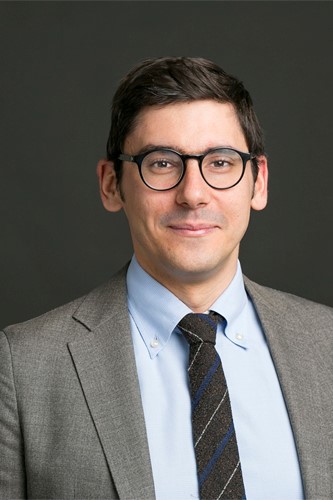
 045 802 8102
045 802 8102

